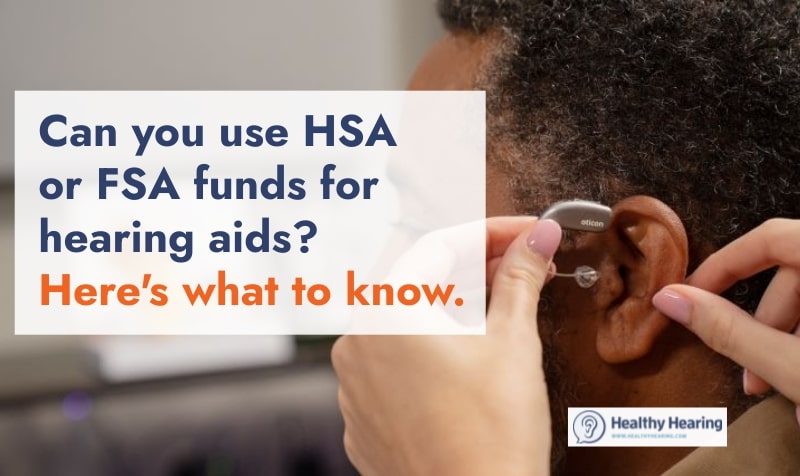Key points:
-
Health savings accounts (HSAs) and flexible spending accounts (FSAs) help people reduce the burden of out-of-pocket medical care.
-
Hearing aids and accessories like chargers and cleaning kits are considered qualifiying medical expenses.
-
If you have money set aside in an FSA, you must spend the full amount each calendar year. It will not roll over.
If you've got hearing loss and need to buy hearing aids, it's a very good idea to use HSA or FSA funds for this purchase.
Why? Because hearing aids are not covered by Medicare nor by many health insurance plans, so using pre-tax money reduces your out-of-pocket expenses.

What kind of hearing care expenses are covered?
The following are typically considered “qualifying medical expenses,” meaning you can use your savings accounts for these purchases:
- Hearing aids and related services, such as co-pays, exam fees and repairs
- Hearing aid chargers and batteries
- Hearing assistive devices, such as captioned phones
- Ear cleaning kits
Quick definitions
Health savings account
HSAs are “a type of savings account that lets you set aside money on a pre-tax basis to pay for qualified medical expenses,” according to HealthCare.gov. You can contribute to an HSA only if you have an HSA-eligible plan (also called a High Deductible Health Plan). You can roll over the money year after year. The money may also earn interest and is not taxed.
Flexible spending account
FSAs are similar but offered by employers and do not roll over year after year. When you have an FSA, you put pre-tax money from your salary into the account to pay for out-of-pocket health expenses. This helps you save money. The downside? There are limits on how much you can put in an FSA and all the money must be spent within the calendar year.
Here's a handy comparison chart on the two.
Hearing aids are tax deductible
More good news: Hearing aids and other costs related to treating hearing loss can be included as medical deductions on your taxes. This is another good way to reduce the price of hearing aids, which can reach upwards of $6,000.
More: Hearing aids and tax time: What to know.
The above is the interpretation of Can You Use HSA/FSA for Hearing Aids? A Guide provided by Chinese hearing aid supplier Shenrui Medical. Link https://www.srmcm.com/Blog/Can_You_Use_HSA/FSA_for_Hearing_Aids_A_Guide.html of this article is welcome to share and forward. For more hearing aid related information, please visit Blog or take a look at our Hearing aids products















